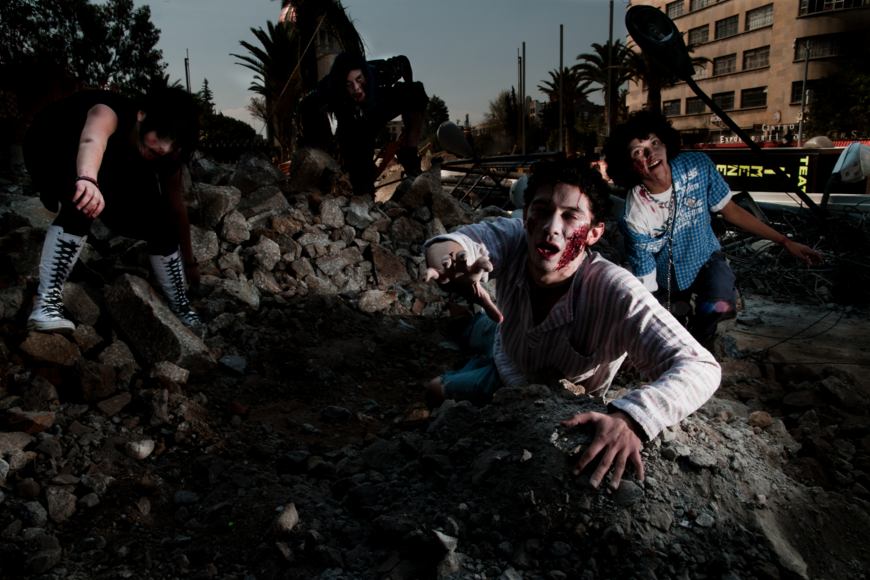
Students can win a $2,000 scholarship by playing a game comparing the effects of global warming to a zombie apocalypse.
DoSomething.org’s “Planet Zombie!” SMS game is designed to introduce students to “the concept of Climate Justice by showing how low-income communities are hit the hardest by disasters.”
According to DoSomething.org, “Climate Justice is the acknowledgment of the disproportionate impacts of climate change on low-income communities and communities of color, and the act of elevating their struggle and walking in solidarity with them.”
MRCTV played the “Planet Zombie!” game. After escaping the zombie invasion, players are asked whether they want to “RALLY ur town” or “speak to the GOVT,” and if they want to “VOW as a community not to use the toxic fuel” or “LOBBY government to end production of the fuel.”
After playing the game, users are directed to a page that asks, “What Do Zombies Have to Do With Climate Change?”
According to DoSomething.org’s pamphlet, climate change is similar to a zombie apocalypse because:
- “We have toxic fuels IRL. Burning fossil fuels such as coal and oil emits greenhouse gases, which thicken our atmosphere and alter our climate in dangerous ways.”
- “People with already limited access to affordable, quality food find it even harder to get to a supermarket during a disaster. Also, they often don’t have enough money to buy food in bulk.”
- “Limited mobility and lack of transit options leave low-income people extra vulnerable during disasters.”
- “Government neglect in low-income areas leaves infrastructure run-down and unable to withstand a storm.”
- “Droughts and storms can destroy farms and therefore food supplies. Agricultural workers are hit hardest by this since their livelihood depends on crop yields.”
- “Seniors are at a higher risk when it comes to heatwaves and other disasters.”
- “A storm can shut down schools with poor infrastructure for weeks or even months, leaving low-income students at an even greater disadvantage.”
- “Low-income neighborhoods, especially where indigenous populations live, are used as dumping grounds for the rest of the country’s toxic waste.”
- “During a disaster, low-income neighborhoods often receive fewer social services, along with limited aid supplies and relief.”
- “Low-income communities are most vulnerable to the effects of disasters due to poor-quality housing and infrastructure.”
- “Low-income communities are not top priority when it comes to emergency responses.”
There are no sources provided in the informational pamphlet to back up the claims.
The pamphlet also asks people to “Advocate for climate justice right now…IRL!” by texting a number and then tweeting, “Fighting climate change is about saving people not just the planet. Protect us, @GarlandMerrick. Move forward w the #CleanPowerPlan.”
DoSomething.org also promotes President Obama’s Clean Power Plan on its FAQ page.
Students are entered into the scholarship drawing by inviting three of their friends to play the game.
DoSomething.org is described as “[o]ne of the largest global orgs for young people and social change.”
Other DoSomething.org projects include the anti-Halloween costume “1 Star for Hate” campaign, the anti-gun “Guns Out” campaign, and the anti-microbead “Beat the Microbead” campaign.
